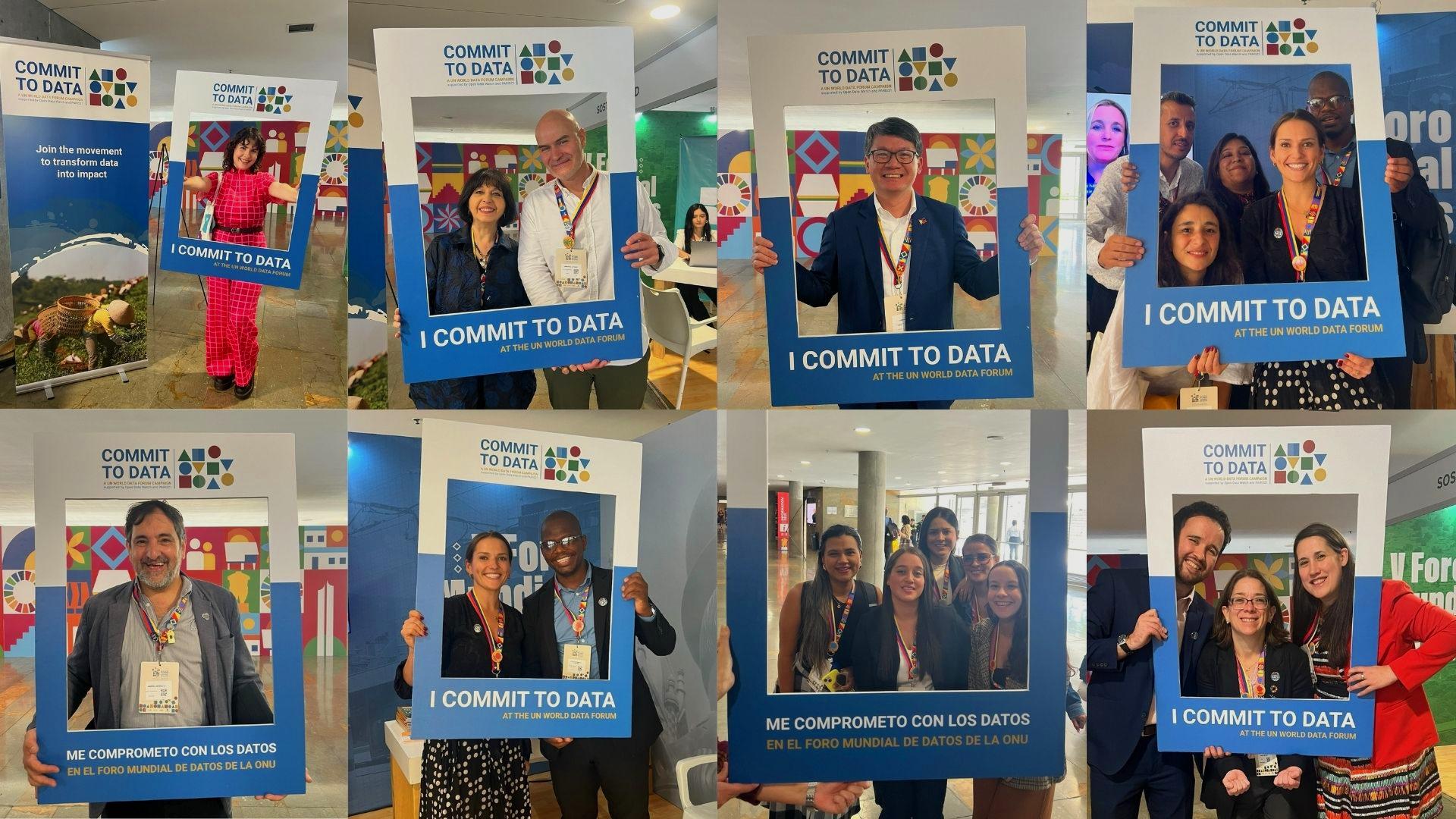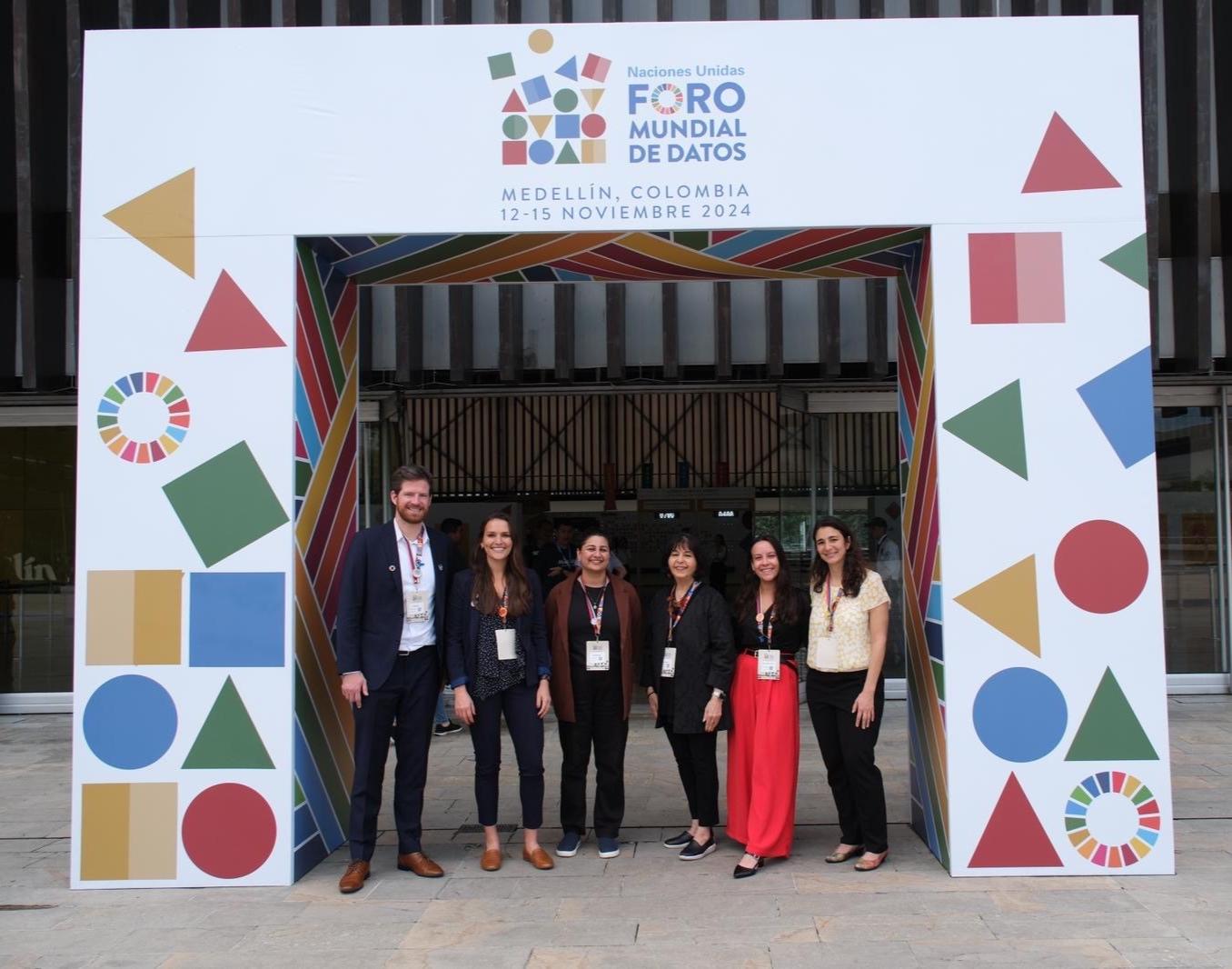Driving Change Through Data:
ODW at the 2024 UNWDF
by the ODW Team
25 November 2024
The 5th UN World Data Forum (UNWDF) took place in Medellín, Colombia. With participation from data experts, policymakers, civil society organizations, and advocates from around the world, this year’s forum focused on inclusive data, trust and ethics, effective partnerships, and maximizing the use and value of data in decision-making.
Open Data Watch (ODW) was proud to take an active role in the planning ahead of UNWDF as co-chair of the Programme Committee as well as during UNWDF through sessions and side events, contributing to key discussions on the importance of citizen and gender data, intersectionality, and the Commit to Data campaign.
Below we share some of ODW’s key activities, thematic contributions, and insights from the forum, showcasing how data is driving change for a more equitable and inclusive future.
Citizen-Generated Data
Citizen-generated data (CGD) was a recurring theme at the UNWDF, being mentioned in several sessions and by different organizations, which underscored its potential to complement official statistics and fill critical data gaps. As a member of the Steering Committee of the Collaborative on Citizen Data, ODW joined events that explored ways to integrate CGD into national statistical systems through the , captured social mobilization experiences by civil society organizations around the world, and advocated for citizen engagement in taking data into their own hands.
Gender Data
This year, ODW brought over 13 Gender Data Network (GDN) members from the Africa and Asia-Pacific regions to the UNWDF, amplifying regional perspectives and fostering global collaboration as it relates to gender data. Throughout the forum, ODW and GDN members participated in several sessions and side-events on inclusive data, listening and sharing real-world experiences that demonstrated the transformative power of gender data in statistical systems.
Intersectional Data Systems
Intersectionality is no longer a peripheral issue and the discussions at this year’s forum demonstrated how data ecosystems must change to reflect the interconnected realities of diverse communities around the world. ODW engaged in sessions and side events that explored the intersections of gender, socioeconomic status, race, and health, emphasizing how nuanced, disaggregated data is essential in ensuring no one is left behind in data systems and development initiatives.
Commit to Data
At the heart of ODW’s presence at the UNWDF was the Commit to Data campaign, an initiative created in partnership with PARIS21 and with support from the Hewlett Foundation, which seeks to harness global commitment that drives sustainable development through data. Through our booth, video campaign, and poster session featuring nearly 40 commitments, we emphasized how collective efforts strengthen data systems, promote inclusivity, and accelerate progress beyond the sustainable development goals (SDGs).
One of the highlights from the session was remarks by His Excellence Fahad bin Abdullah Aldossari, President of General Authority of Statistics of Saudi Arabi, who demonstrated an intention to keep the momentum from the campaign going, ensuring that the over 70 commitments made leading up to Medellín and over the next years pave the way for the 2026 forum in Riyadh.
Key Takeaways and the Road to Riyadh
The conversations and commitments from Medellín set the stage for the continued evolution of data systems worldwide. As we prepare for the next UNWDF in Saudi Arabia, the following takeaways emerge from the forum discussions and activities:
- Inclusive and intersectional data systems are crucial: Building a more inclusive and intersectional data system ensures that diverse realities are reflected in decision-making. Discussions at the forum, including those led by GDN members, revealed how data systems can drive equitable progress if designed to address overlapping inequalities.
- Citizen-generated data drives local and global change: CGD gained prominence as a solution to fill critical data gaps and complement national statistics. The UNWDF sessions displayed how CGD empowers local communities and, in turn, leads global action to develop more responsive and participatory data systems. The latest version of the Copenhagen Framework will be instrumental in leading the change.
- Effective partnerships drive progress: Collaboration is essential for achieving sustainable development. The Commit to Data campaign was created to emphasize how partnerships are crucial to mobilize resources, share expertise, and foster collective action when using data to drive progress and actionable policies.
- Data must be aligned with broader development goals: The forum emphasized the need for data strategies that dialogue with other frameworks part of the development agenda such as the, Financing for Development (FfD), and the Commission on the Status of Women (CSW). This approach strengthens the role of data in advancing coordinated efforts to address intersecting global challenges.
NOTES: Official highlights from the 5th UN World Data Forum
- Outcome Document:: Medellín Framework for Action on Data for Sustainable Development
- Plenary Session Recordings
- Pictures and media coverage of key moments and discussions:










